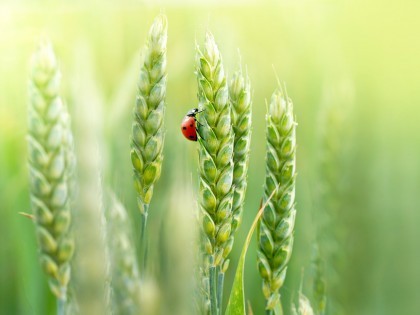
Crop science organisation NIAB has welcomed today’s announcement that the Government is set to free up research and improve the rules surrounding gene edited crops, marking an important step towards more proportionate and enabling regulation of these technologies and giving a boost to prospects for UK plant science.
Last year, NIAB chief executive Dr Tina Barsby brought together a group of leading scientists to support a letter urging the Government to change the legal definition of GMO such that gene edited organisms whose DNA changes could have occurred naturally or through traditional breeding methods should not be regulated as GMOs.
This call from the scientific community was supported by cross-party politicians, farmers, plant breeders, food processors and other agri-food organisations, and during the passage of the Agriculture Bill in summer 2020, the Government agreed to consult on proposals to take simple gene edited products out of the scope of GMO regulation. The public consultation ran from January to March 2021.
Welcoming the Government’s response to the consultation, Dr Barsby said:
“Today’s announcement sends an important signal that Britain is adopting a more pro-science approach outside the EU, aligning our rules with other countries such as Japan, Canada, Argentina, Brazil and Australia, and boosting prospects for inward investment and international research collaboration given the UK’s strengths in genetic science.
“Innovation in plant breeding will be the single most important factor in helping global food supplies keep pace with a growing world population in the face of climate change and pressure on finite natural resources of land, water, energy and biodiversity.
“In terms of breeding objectives, there are virtually limitless possibilities to accelerate the development of more productive and sustainable food systems, with crops more resistant to diseases, environmental conditions and climate change effects, food products with improved nutritional qualities, and reduced need for agricultural inputs such as pesticides.
“For British farmers, virus yellows resistance in sugar beet is an obvious early target since the withdrawal of neonicotinoid seed dressings has left the crop vulnerable to massive yield losses. Here at NIAB we are also keen to explore the potential for gene editing to transform the performance of leguminous crops such as faba beans and soybeans under UK growing conditions. These are neglected crops in terms of breeding effort, and yet the economic, environmental and climate change opportunities presented by these break crops, as a Nitrogen-fixing source of home-grown, plant-based protein for human and livestock consumption, are hugely significant.”
Dr Barsby also highlighted the opportunities for precision breeding techniques such as gene editing to support prospects for agroecological approaches to farming and food production, and called for organic sector bodies in particular to keep an open mind on the potential benefits:
“Many of the food crops we grow and consume today have had their genomes changed in any number of ways, not only through traditional cross-breeding but also using radiation or chemicals to induce random mutations. Existing regulatory controls on plant varieties and seeds ensures that the crops developed using these breeding techniques have been widely used in conventional and organic farming for decades with an impeccable track record of safety. Why would we apply greater scrutiny to crop plants improved using even more precise tools? Thankfully Defra has today confirmed that it makes no sense to have extra regulation for gene edited crops which are indistinguishable from crops developed using conventional breeding techniques.
“By accelerating the development of improved disease or pest resistance, making crops more resilient to stress, or adapting crops to perform better under low-input conditions, these new breeding tools have as much, if not more, to offer low-input systems such as organic farming. I know many organic farmers are not comfortable with using copper-based fungicides, or relying on non-organic seeds to give organic crops a healthy start. Gene editing can offer alternative solutions. I would therefore encourage grass-roots organic farmers to take a stand against the doctrinal opposition of their certifying bodies, and urge them to keep an open mind on the potential for these technologies to make low-input farming a more sustainable option, environmentally and economically,” said Dr Barsby.
